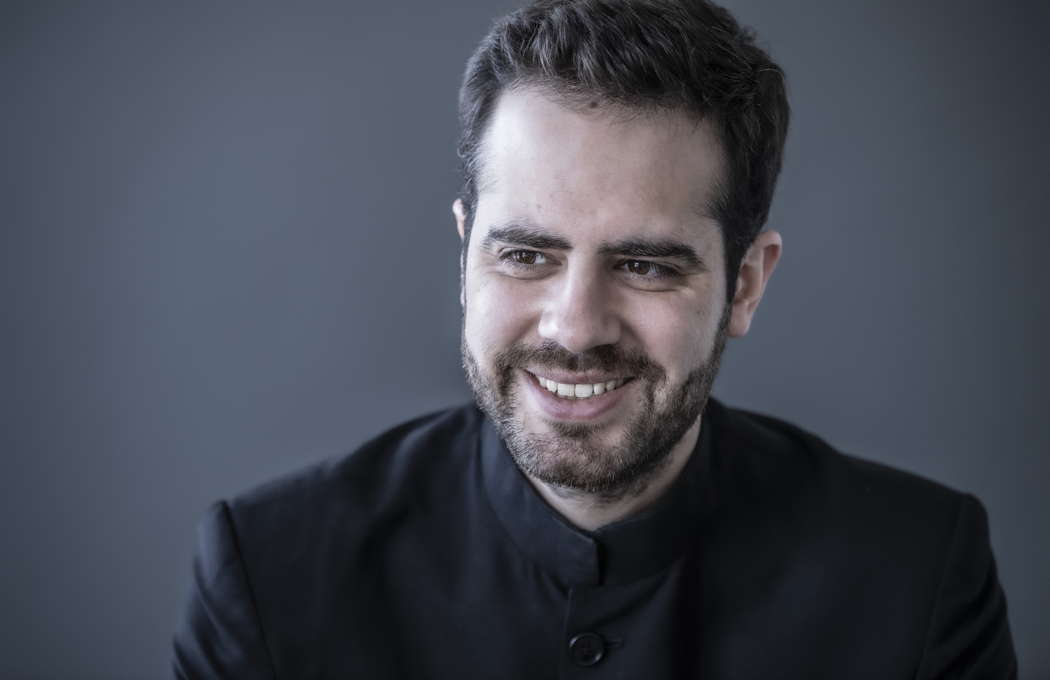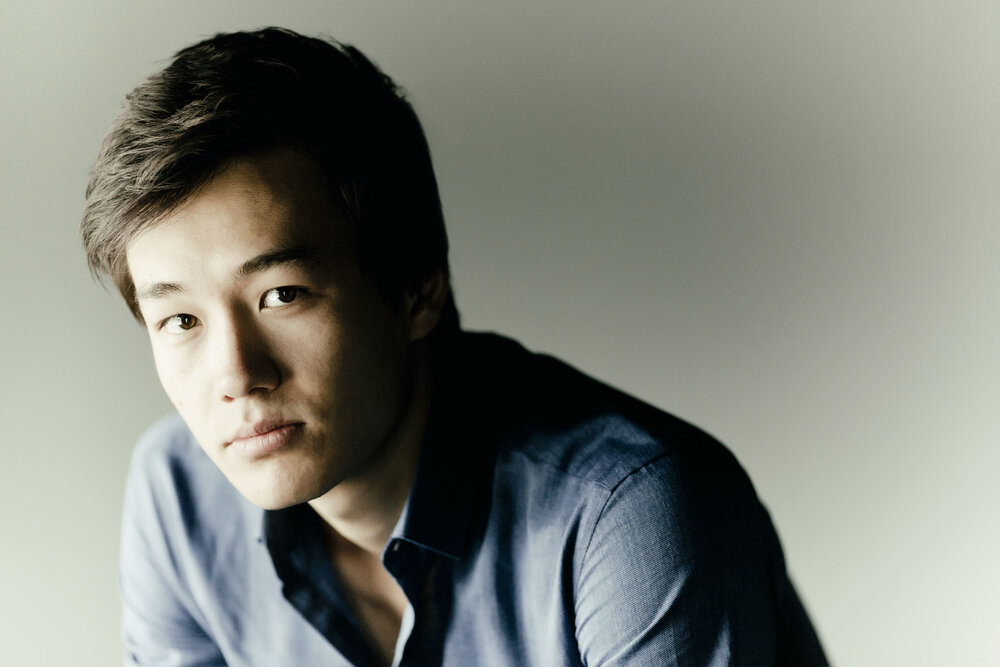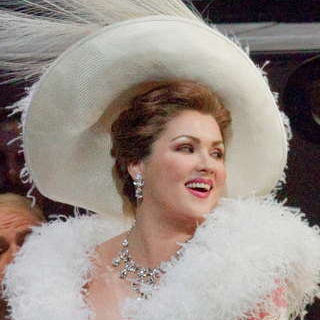- Pierre Monteux
- Carlo Gesualdo da Venosa
- Konstantin Iliev
- Ruth Crawford Seeger
- Niel Immelman
- Antigone Journal
- Saint-Saëns: Symphony No 3
- Ravel: Jeux d'Eau
An Exciting New Partnership
MIKE WHEELER listens to Dinis Sousa and the Royal Northern Sinfonia
Portuguese conductor Dinis Sousa was appointed Principal Conductor of Gateshead-based Royal Northern Sinfonia in March 2021, and an exciting new partnership is clearly developing - Royal Concert Hall, Nottingham, UK, 30 November 2021.
An intensely tragic view of the first movement of Schubert's 'Unfinished' Symphony opened at the very edge of audibility. In contrast, and without wishing to get too melodramatic about it, the volcanic outbursts later served as a reminder that the work's composition coincided with the age of the gothic novel. But the music wasn't allowed to sprawl. Conductor and orchestra kept a tight grip on the structure, emphasising just how compact this movement is.

Dinis Sousa. Photo © 2020 Sim Canetty-Clarke
The gently crooning bassoons and horns launching the second movement opened out onto a haunted landscape, peaceful and stormy by turns, with poignant, fragile clarinet and oboe solos from Cristina Mateo and Michael O'Donnell, respectively. Something else was revealed in this performance: how shaky is the idea that these two movements are somehow complete in themselves. Maybe it's time to have another look at the reconstructed four-movement versions that gained currency for a while some forty or fifty years ago.
Saint-Saëns' Piano Concerto No 2 had soloist Louis Schwizgebel producing the right mixture of seriousness, caprice and elegance. The opening Bach-influenced solo was imposing while also tapping a lively vein of fantasy. These two expressive poles went on to inform a performance that was full of fiery attack, but also purred and sparkled.
The second movement invites comparison with a soufflé or champagne bubbles, but that doesn't do justice to its very real substance. This performance did, though, while scampering through its twists and turns, and swinging into the last appearance of the laid-back second theme with nonchalant ease. The finale is a virtuoso piece, but it's definitely not for mere show-offs, as this account made clear.
Schwitzgebel's unannounced encore was the B minor Prelude from J S Bach's Clavier-Büchlein for Wilhelm Friedemann Bach, transcribed by Alexander Siloti, played with poise and elegance.

Louis Schwizgebel. Photo © Marco Borggreve
Mozart's Symphony No 40, like the Schubert, is another piece it is all too easy to take for granted. Sousa and the RNS took the first movement at a real allego molto, and it made such a difference to how the music is perceived. Mozart scholar Jack Westrup heard in it the spirit of comic opera. I'm not sure I completely agree, but in this performance I could hear exactly what he was getting at, without the darker emotions being short-changed. The second movement's nagging two-note figures had a kind of subtle persistence, and again an operatic element came through.
Orchestra and conductor revealed just what a startling take on the classical minuet the third movement is, highlighting the trio's geniality in the process. They also made a pretty-well unanswerable case for dividing the first and second violins either side of the stage.
A combination of impetuosity and a firm hand on its forward motion produced a compelling account of the finale. Those disorienting few bars at the start of the development were genuinely punchy, while the more melancholy moments were given just enough space.
At the end, Dinis Sousa bowed to the orchestra as well as to the audience. Judging by how the players all beamed back, they've obviously taken to him in a big way.
Copyright © 18 December 2021
Mike Wheeler,
Derby UK

NOTTINGHAM ROYAL CONCERT HALL ARTICLES




